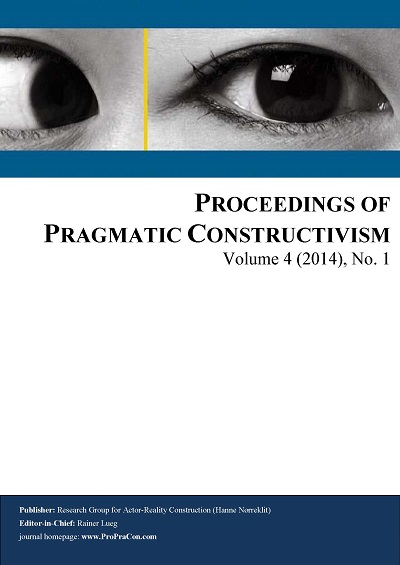Social accounting in supply chain management: a pragmatic constructivist perspective
DOI:
https://doi.org/10.7146/propracon.v4i1.20931Keywords:
human rights, social accounting, pragmatic constructivism, supply chainAbstract
This study explores the role of accounting in the human rights management within the supply chain.Our interest for this issue arises from the recognition of significant changes occurred in the last decades. In today's global economy, “the competition has shifted more and more from an inter-firm to an inter-supply-chain level” (Gold et al., 2010) and many organizations are part of one or more supply chains (Samaranayake, 2005). As a result, “management processes now quite frequently transcend legal organizational boundaries” (Hopwood, 1996), as well as production processes. The financial crisis has emphasized the shift of power from nation states to transnational corporations at the centre of global value chains. These powerful actors are increasingly challenged by human rights violations occurring in the socio-political contexts in which they operate (Ruggie, 2007), especially where national law does not provide adequate protection. In these growing network systems, the main difficulty for a focal company is to exercise management control on suppliers over which it has no ownership, but for the behaviour of which it is held accountable (Andersen and Skjoett-Larsen, 2009). Indeed, in 2011, for the first time in the history, the UN Special Representative, John G. Ruggie, declared that corporations have direct human rights responsibilities, either through their own activities or as a result of their business relationships with other parties.Downloads
Published
How to Cite
Issue
Section
License
Previous and future use of the work
ProPraCon assumes the non-exclusive rights to publish and store the work of its authors, once they have consented to a publication. Since the rights to publish are non-exclusive, authors are free to re-use their work, e.g., to publish it in other media (as ProPraCon aims at publishing proceedings). Hence, it is explicitly allowed that works submitted to ProPraCon may be published in a somehow similar form in other media. Yet, submitting authors warrant that the work is not an infringement of any existing copyright and will indemnify the publisher against any breach of such warranty.
Permissions
By submitting work to ProPraCon, the authors declare that they have permission to use any content that has not been created by them. Specifically, when using tables, figures or excerpts of more than 400 words, it is expected that the authors…
- …obtain written permission of copyright for the use in print and electronic formats of any of their text, illustrations, graphics, or other material, in their work. This includes any minor adaptations.
- …acknowledge the original source in captions and in the reference list.





